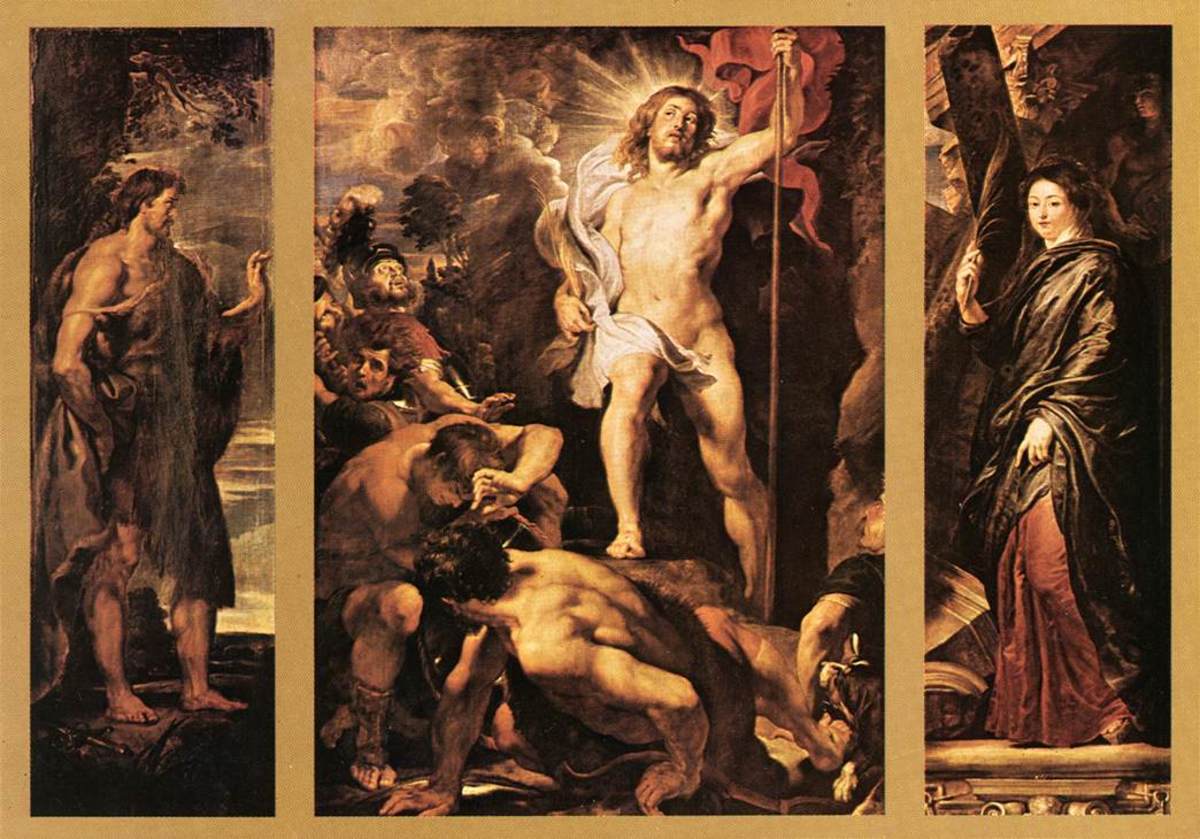Five Examples of the NIV Changing the Gospel
Is the NIV Watering Down the Gospel?
There
has been a great deal of controversy surrounding the newer versions of the Holy
Bible. The New International Version, or NIV, has been put under a microscope
because of its changes and omissions to the Holy Scripture. When studied
closely and compared to older versions like the King James Version, the NIV
simply does not stand up in terms of doctrine. Following are five ways that the
NIV makes changes and omissions of a simple word or phrase that completely
changes the doctrine that the Holy Bible teaches.

1. Mary's Virginity
In
Matthew 1:25 of the King James Bible, the author writes this: “And knew her not
till she had brought forth her firstborn son: and he called his name JESUS.”
One of the most essential doctrines of the Christian faith is the virginity of
Mary before Jesus was born. This was important because Jesus had to be born
without the natural sin of Adam. If Jesus was not the firstborn of the virgin
Mary, she would not have been the pure women that the Christian faith teaches.
But the NIV, by leaving out one word from that verse, removes the certainty
that Mary was a virgin at the time of Christ’s birth.
Here is what Matthew 1:25 says in the NIV: “But he had no union with her until
she gave birth to a son. And he gave him the name Jesus.”
By removing the word “firstborn” and simply replacing it with “a son,” the
translators of the NIV imply that Mary may have had other children before Jesus
was born. At the very least, the NIV does not make it a certainty that Jesus
was the firstborn son of Mary. Therefore, the NIV (at the very least) casts a doubt on the doctrine
that Mary was a virgin and, as a result, Christ was born without natural sin.
2. The Sinless Nature of Christ
The
Christian doctrine teaches that Christ lived a sinless life. In 1 John 3:5, the
Bible teaches us this: “And ye know that he was manifested to take away our
sins; and in him is no sin.” There are other verses that tell us that Christ
had no sin and this is just one of them. But the NIV would have us believe
something different.
In Matthew 5:22, we are told that being angry with a brother without cause is a
sin. In the King James Bible, the verse reads like this: “But I say unto you,
That whosoever is angry with his brother without a cause shall be in danger of
the judgment: and whosoever shall say to his brother, Raca, shall be in danger
of the council: but whosoever shall say, Thou fool, shall be in danger of hell
fire.” This tells us that we must have a reason for being angry with our
brother or else we are sinning.
The same verse in the NIV would have us believe something different. Here is
how Matthew 5:22 in the NIV reads: “But I tell you that anyone who is angry
with his brother will be subject to judgment. Again, anyone who says to his
brother, 'Raca,' is answerable to the Sanhedrin. But anyone who says, 'You
fool!' will be in danger of the fire of hell.” The problem here is that the NIV
takes out the phrase “without cause.” As such, it implies that being angry even
with cause is a sin, which means Jesus would have sinned when he went into the
temples and threw over the tables of the money changers.
Are you starting to see how changing a word here and leaving out a word there
can change an entire belief system? Let’s keep going, shall we?
Which Bible do you read?
3. God "Openly" Rewards Us
As
Christians, we are taught that the things we do for God in secret will bring us
rewards in the open. We are supposed to do things “behind the scenes” rather
than taking credit for them because we should have a desire to do them for
God’s glory rather than our own. There are several verses in the sixth chapter
of Matthew that explain this doctrine.
Matthew 6:4 says, “That thine alms may be in secret: and thy Father which seeth
in secret himself shall reward thee openly.” In Matthew 6:6, we are told this:
“But thou, when thou prayest, enter into thy closet, and when thou hast shut
thy door, pray to thy Father which is in secret; and thy Father which seeth in
secret shall reward thee openly." And in Matthew 6:18, it says this: “That thou
appear not unto men to fast, but unto thy Father which is in secret: and thy
Father, which seeth in secret, shall reward thee openly.” As you can see from
these verses, giving tithes, praying and fasting are things we should do in
secret so as to not glorify our own deeds. When we do these things in secret,
God will give us rewards for all to see.
But the NIV takes out each instance of the word “openly” in these three
passages. It might seem like just a small change, but it changes the way God rewards us for our secret deeds.

4. The Lord's Prayer
Surely
the editors of the NIV wouldn’t even think about omitting words and phrases
from the Lord’s Prayer, would they? In Matthew 6:13 of the NIV, the phrase “For
thine is the kingdom, and the power, and the glory forever, Amen,” is left out.
Unfortunately for the editors of the NIV, this phrase appears in more than 490
of the 500 manuscripts that the Holy Bible is based on. Why would they leave
out such a pertinent phrase that appears in more than 98 percent of the
transcripts that exist? One of the reasons is to blur the lines between the
Almighty God and Satan. This idea goes back to the idea of the New Age Movement
playing a major role in the editing of the NIV, which is a topic I will take up
in another post.
Why would the NIV editors omit this phrase? The Lord’s Prayer is found in full
in other books of the gospel. But when you remove it from one part, it’s easier
for future versions to remove the other instance.
5. The Deity of Christ
Jesus
Christ is the Son of God. That is evident throughout the Scriptures. So why
does the NIV seem to whittle down those instances out that verify Christ’s deity? In Matthew
8:29, it says: “And, behold, they cried out, saying, What have we to do with
thee, Jesus, thou Son of God? Art thou come hither to torment us before the
time?” That’s from the King James Version and it is talking about the demons
being witness to the fact that Jesus was indeed the Son of God. Their statement
couples “Jesus” with “Son of God” so there is no doubt about who they were
talking about.
But in the New International Version, the editors leave “Jesus” out of the
demons’ questions. Here is how the NIV recounts the situation: “What do you
want with us, Son of God?" they shouted. "Have you come here to
torture us before the appointed time?” By removing “Jesus” from this verse, it
is unclear about who the demons are talking to. Are they talking to Jesus? Or
are they talking to someone else?
Of course, this verse does not nullify the deity of Jesus Christ. But it is
just one instance in which the NIV editors have decided to change the Scripture
in a way that makes it easier to question or even doubt the Christian doctrine.
These are just five instances within the first eight chapters of The Gospel in which verses have been changes to seemingly promote an agenda. There are dozens, if not hundreds more instances of these subtle changes that make all the difference in the world.







